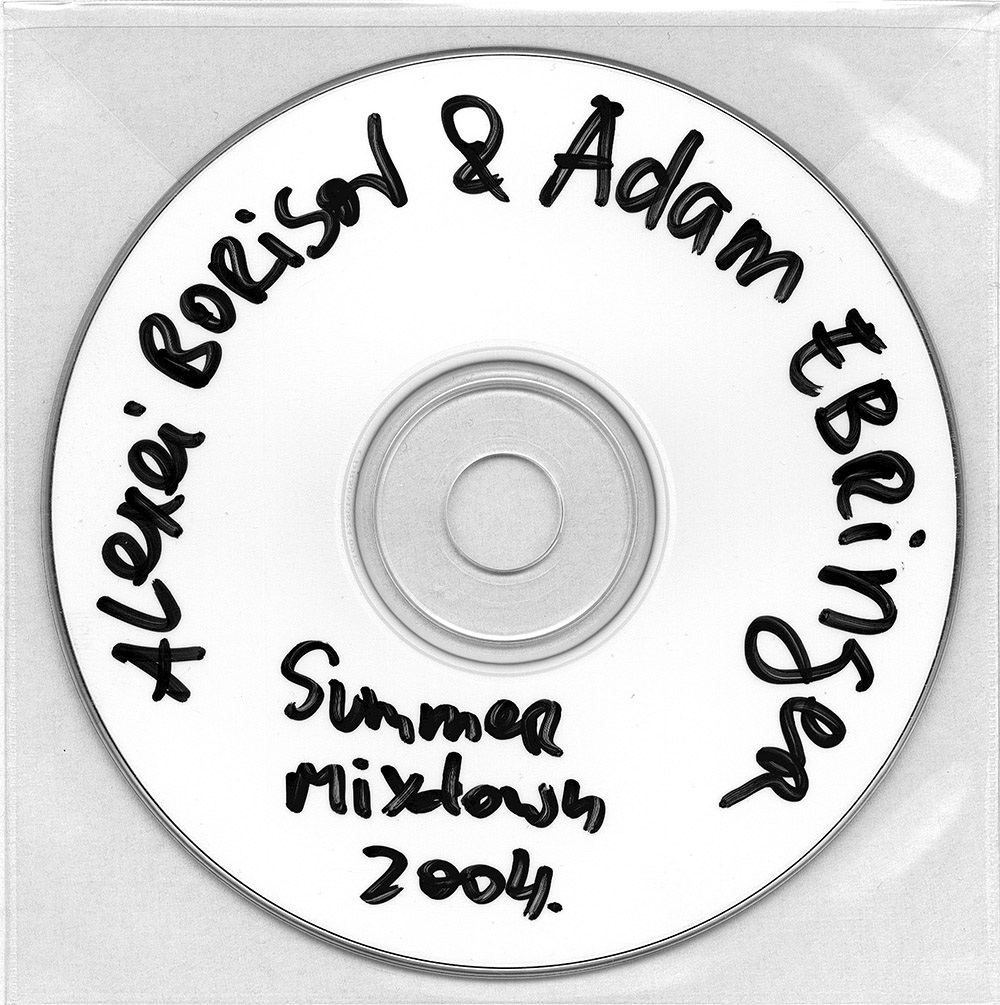Alexei Borisov, Adam Ebringer / Version 0
Russian electronic music. People and Instruments
…The second half of the 90s for me was in endless tours over Russia, both solo and in some small projects, where I had to play electronic music of a wide range in absolutely different places and environments. Moreover, availability of compact and mobile instruments in combination with DJ techniques helped in my visits to Europe, when I established interesting contacts and enhanced my performance abilities to play in any facility and to get promptly adjusted in any project. The current situation in Russian electronic music is very similar to that of Europe or America. A total computerization of the musical process is taking place, which is conditioned by a natural development of technologies, as well as objective economic reasons. It is understood that computers provide endless possibilities to musicians. However, computer technologies are able to level or standardize the product to such an extent, that various aesthetic, national, emotional, personal and other subjective features of the producer could just disappear. For many people such a situation of sound and technological cosmopolitism is unacceptable, but for some, on the contrary, is very attractive and the only possible one. Meanwhile, Russia still remains a closed country, including its cultural sphere. Vast territories and large numbers of the population stay in informational and technological isolation. Absence of a single music market also affects the development of musical processes, including the field of electronic music. Of course, a certain role is played by the specific Russian mentality, which still can’t be clearly apprehended and, most likely, is a combination of some very subjective social-psychological, linguistic and cultural peculiarities, conditioned by local age-old traditions, as well as peculiarities of the historical process within a given territory. Such nuances can influence not only a local or regional situation but include the musical sphere, of different world-wide and global processes. This influence can be positive or negative, with an adverse development of the situation, negative moments will prevail, finally helping global growth of absurdity, uncontrolled anarchy and, as a result, an inevitable collapse of the world civilization. To a certain degree, Russian electronic music in general is a continuation or development of the traditions of the Russian avantgarde (neo-futurism, suprematism, constructivism, absurdism, etc.) in combination with mass worshiping of a scientific and technical progress. Since 1920’s Russia (and later East Europe and a part of Asia) became a large training ground for testing and probation of various social-economic schemes, technological ideas and different inventions, as well as national economic experiments. At some moment, in Russia a specific idolization of machines, industrial architecture, electricity, science and the very process of labor occurred. Moreover, industrialization of the society and scientific and technical progress in general to obtain a political character, becoming a part of communist ideology and a means of fighting against western imperialism and capitalism. Russian electronic environment subconsciously reflects this phenomenon, being a kind of symbol of sacrilege of the very act of music production with the help of sophisticated devices and the latest computer programs. As a result, a certain hypothetic task of Russian electronic music is to combine harmoniously and effectively its intellectual potential with the cult of technology. On the other hand, for local musicians it makes sense to overcome a certain technological dependence or even inferiority to achieve artistic freedom, mental liberation and independence from various cliches and notorious international standards. Just then, in my opinion, an interesting result is possible, which can absorb the entire variety and depth of Russian cultural chaos, providing at the same time a considerable influence on worldwide creative process.

